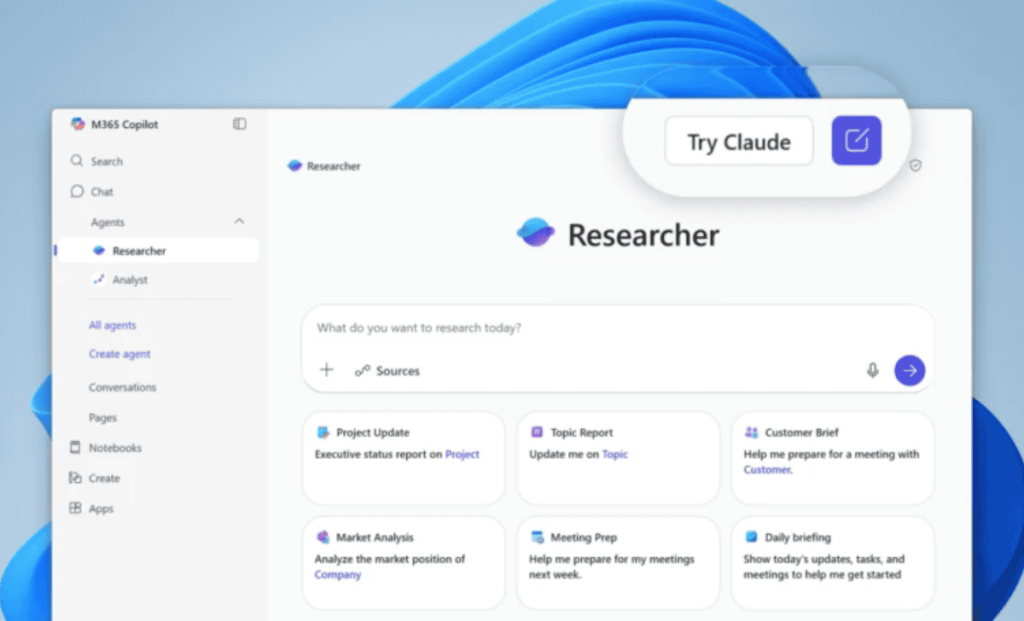Readers help support Windows Report. We may get a commission if you buy through our links.
Read our disclosure page to find out how can you help Windows Report sustain the editorial team. Read more
As earlier reported, Microsoft is adding Anthropic’s Claude models into Copilot. With the latest move, Microsoft has expanded its AI options beyond OpenAI. The change takes effect starting today. So, what’s going on?
Copilot business users can now pick between OpenAI’s deep reasoning models and Anthropic’s Claude Opus 4.1 and Claude Sonnet 4. Opus 4.1 is fine-tuned for complex reasoning, advanced coding, and architecture planning. Whereas Sonnet 4 handles routine dev tasks, large-scale data processing, and fast content generation.
Claude Opus 4.1 power Researcher and Copilot Studio agents, enabling customized, enterprise-grade automation. Users can easily switch models, streamline tasks, and access these features via opt-in in the Microsoft 365 admin center.
This move comes just weeks after Microsoft announced that Anthropic’s AI would also power features in Office apps like Word, Excel, and Outlook. The addition of Claude to Copilot makes the partnership more visible. That’s not all; there were reports about the company favoring Claude AI in VS Code over GPT-5.
For enterprise customers, that means picking the right model for the right workload. By integrating Anthropic’s AI models into Copilot, Microsoft is positioning the assistant as a multi-model hub.
Moreover, it also strengthens the company’s hand in the increasingly competitive AI space, where rivals like Google and Amazon are backing multiple providers. For now, OpenAI is still central to Copilot. But with Anthropic in the mix, Microsoft is making clear it wants more control over its AI future.

